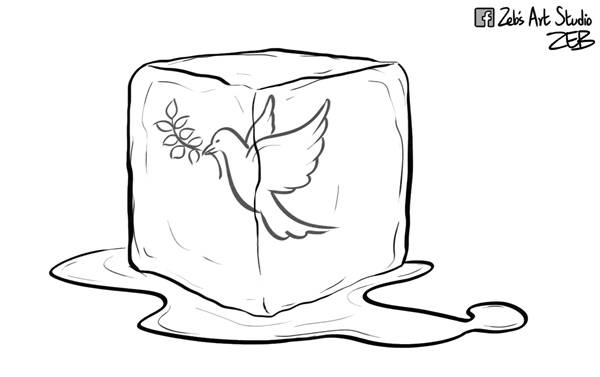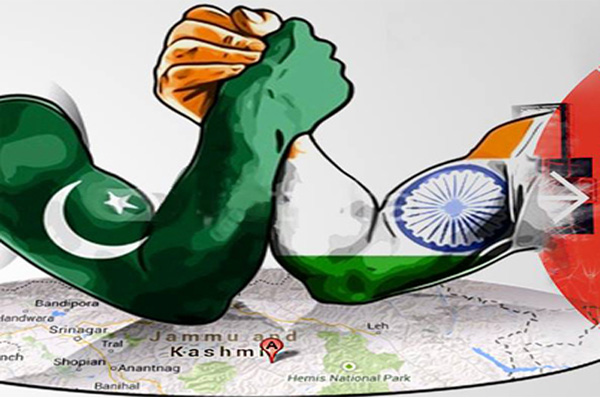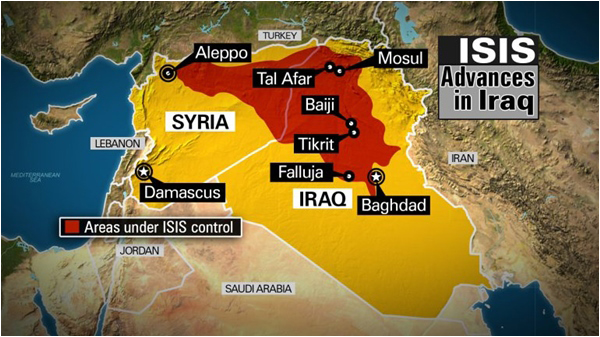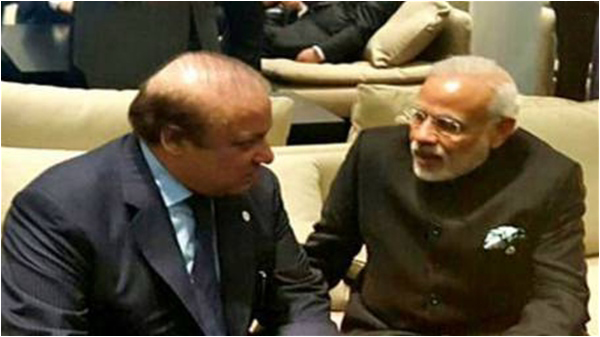
E-commerce equals ‘e-bridge’
Sir,
India is in the midst of a revolution, which is touching the lives of more and more citizens everyday. This revolution comes to us courtesy the wave of Internet shopping that is growing at an accelerated pace. What makes it a revolution is the reach of e-stores, which do not have to face geographical constraints. Even denizens from remote villages are ordering their choicest brands and fancy products from the Internet storefront.
While rich collegians from metro cities are flaunting stylish accessories shopped on the go from US and European portals, there are people like Laxman Ravat, who hails from a lesser-known hamlet called Salambar in western India. Laxman, who works as a domestic help, has a small feeling of joy somewhere inside. The joy is anticipation of a pack of seven saris (Indian traditional wear for women) that he ordered online with a friend’s help for the women of his entire extended family at a 70% discount, cash-on-delivery.
If there is a possible way to brighten the affinity between India and Pakistan, it may be through affirmative acquaintance between the youths of both countries. Actually, there are a lot of commonalities between these Internet generations, like their sociability for gadgets, like for technology and inclination to being more stylish and fashionable. There may be hundreds of thousands of merchandise in both countries that are beyond the reach of those across the border, but may sell like hot cakes if offered to the audience on the other side. This may include clothes, jewelry, artifacts and food products, among several others.
What if e-retailers from both countries start promoting their online portals across the dividing line? First of all, there will be the opportunity of a huge brand new market for retailers, many of whom are currently busy exercising every bit of effort to find and bring in new habitué to their e-outlets. Consumers can now shop a whole new set of products that were never before available. But, most of all, there is a good probability that it will build an entire new relationship of trust and dependency between traders and clients located in two different lands. If governments and trade organisations offer an environment and infrastructure for necessary checks, the concept that looks like a dream may become a reality. Also, the borders that would be crossed by deliveries of choicest goods everyday would have fewer chances of going to war.
Nischal Sanghavi,
Gujarat.

Anachronistic policy on Kashmir
Sir,
Here is a piece of history by Dr Nyla Ali Khan, a Kashmiri scholar at the Oklahoma University, that raises pertinent questions about the willingness of both Pakistan and India to resolve the Kashmir dispute, amicably, bilaterally under the UN Resolutions. The policymakers need to evaluate the available options and understand the situation keeping in view the Kashmiri people’s aspirations, fears and reservations.
In the interests of expediency, the UNCIP appointed a single mediator, Sir Owen Dixon, the United Nations representative for India and Pakistan, Australian jurist and wartime ambassador to the United States, to efficiently resolve the Kashmir conflict. Dixon noted, in 1950, that the Kashmir issue was so tumultuous because Kashmir was not a holistic geographic, economic, or demographic entity, but, on the contrary, an aggregate of diverse territories brought under the rule of one maharaja. In a further attempt to resolve the conflict, Sir Owen Dixon propounded the trifurcation of the state along communal or regional lines, or facilitating the secession of parts of the Jhelum Valley to Pakistan.
Despite the bombastic statements of the governments of both India and Pakistan, however, the Indian government has all along perceived the inclusion of Pakistani-administered J&K and the Northern Areas into India as unfeasible. Likewise, the government of Pakistan has all along either implicitly or explicitly acknowledged the impracticality of including the predominantly Buddhist Ladakh and predominantly Hindu Jammu as part of Pakistan. The coveted area that continues to generate irreconcilable differences between the two governments is the Valley of Kashmir.
Dixon lamented: “None of these suggestions commended themselves to the Prime Minister of India. In the end, I became convinced that India’s agreement would never be obtained to demilitarisation in any such form, or to provisions governing the period of the plebiscite of any such character, as would in my opinion permit the plebiscite being conducted in conditions sufficiently guarding against intimidation and other forms of influence and abuse by which the freedom and fairness of the plebiscite might be imperilled.” (The Statesman, 15 September 1950). Sir Owen Dixon nonetheless remained determined to formulate a viable solution to the Kashmir issue and suggested that a plebiscite be held only in the Kashmir Valley subsequent to its demilitarisation, which would be conducted by an administrative body of UN officials. This proposal was rejected by Pakistan, which, however, reluctantly agreed to Sir Dixon’s further suggestion that the prime ministers of the two countries meet with him to discuss the viability of various solutions to the Kashmir dispute. But India decried this suggestion. A defeated man, Sir Dixon finally left the Indian subcontinent on 23 August 1950.
There seemed to be an inexplicable reluctance on both sides, India and Pakistan, to solve the Kashmir dispute diplomatically and amicably. Sir Dixon’s concluding recommendation was a bilateral resolution of the dispute with India and Pakistan as the responsible parties, without taking into account the ability of the representatives of the people of J&K to be the architects of their political future. Is this the anachronistic policy being toed by the governments of India and Pakistan in 2015? What Pakistan needs to do is to exploit effectively and forcefully the rebutting of the Indian claim of Occupied Kashmir being part of India, by the Jammu and Kashmir High Court that has recently ruled that the State has never been part of India. “Article 370 of Indian constitution that deals with the status of Jammu and Kashmir is beyond abrogation, repeal or even amendment,” the high court said in its ruling the other day. “Article 35A gives ‘protection’ to existing laws in force in the State. Article 370 though titled as ‘Temporary Provision’ and included in Para XXI titled ‘Temporary, Transitional and Special Provisions’ has assumed place of permanence in the Constitution,” a division bench of justice Hasnain Masoodi and Janak Raj Kotwal ruled in a 60-page judgement. “It is beyond amendment, repeal or abrogation, in as much as Constituent Assembly of the State before its dissolution did not recommend its Amendment or repeal,” the bench ruled.
The decision has been highly welcomed by the local parties and political figures representing the major population, Muslims. Peoples Democratic Front (PDF) President and Awami Muthida Mahaz (AMM) leader Hakim Mohammad Yasin welcomed the landmark judgment. They said, “Now the challenge for Jammu and Kashmir government is to further strengthen Article 370. According to the ruling, the Article 370 is a permanent provision of the Constitution and it cannot be abrogated, repealed or even amended. “It is a welcome decision. There was a demand within and outside the Assembly that Article 370 should be safeguarded and the High Court’s historic decision is a welcome step. But now it a challenge for the J&K government and especially for Mufti sahib how to further strengthen it (Article 370) and restore those previsions of this Article which have been eroded over the years,” Hakim Yasin said in a press statement. “Limited sovereignty or special status stands guaranteed under Article 370 of the Constitution,” he added. Media, both print and electronic, must highlight it and the foreign office as well as the intelligentsia must debate it in order to find out and put pressure on India as well as the world community to take the initiative towards resolution of Kashmir as early as possible. One remembers the words of Chief of Army Staff General Raheel Sharif, who, on the eve of Golden Jubilee of 6 September war of 1965, said in his speech: “Kashmir is the unfinished agenda of the subcontinent’s partition. The people of Indian occupied Kashmir are being subjected to Indian injustice and atrocities for over the last seven decades. Enduring peace in the region is not possible without just resolution of Kashmir, it can be no longer put on the back burner. Therefore, time has come that Kashmir issue should be resolved in line with the aspirations of its people in accordance with UN resolutions.”
Fauzia Sardar Niazi,
Islamabad.

California killings
Sir,
The killings of 14 innocent Americans in California should be condemned by all Muslims. Islam is a religion that emphasises sanctity of pledging oaths because voluntary verbal recitation of Kalima itself is a declaration of acceptance of faith and beliefs in its basic principles. This act of a misled couple can only harm the Muslim community living in the US.
Taking an oath makes it obligatory upon the individual to abide by what he has sworn to uphold. Once a Muslim has taken an Oath of Citizenship of another country such as America, Canada or UK, his faith makes it binding upon him to be loyal to its constitution, its laws and also to do all that is required of a national of that country. Having taken the US Oath of Citizenship, the individual pledges to “renounce and abjure all allegiance and fidelity to any foreign prince, potentate, state, or sovereignty of whom, or which I have heretofore been a subject or citizen; that I will support and defend the constitution and laws of the United states of America against all enemies, foreign and domestic; that I will bear true faith and allegiance to the same”. The crisis is created when any state such as Pakistan allows an individual who has taken such an oath to continue to hold Pakistan nationality, although this person has renounced all previous loyalties that he may have held. The American constitution clearly states that “Congress shall make no law respecting an establishment of religion, or prohibiting the free exercise thereof”, ensuring freedom to all citizens to practice their beliefs within confines of law.
Pakistani-origin Americans can have emotional and sentimental attachment to our country, but the fact remains that all their assets and family are located there, and therefore they cannot be expected to put them at stake, if it comes to choosing one or the other. This creates split loyalty for individuals who are caught in this farce and they are neither here, nor there. In my opinion if any individual, such as this couple, had any doubts about their commitment of loyalty to the US, they should have revoked their citizenship, left the country and then taken recourse to what their conscience and free will would allow them to do.
Malik T Ali,
Lahore.

Once a gentleman’s club
Sir,
Organisations and institutions established over years crumble when individual whims are allowed to prevail over rules and healthy traditions set over a century. All it takes to destroy an institution, such as the Gentlemen’s Club located on Upper Mall Lahore, spread over several acres of prime real estate, is an executive committee dominated by men with a history of financial malpractices, moral bankruptcy, who are facing charges for corruption, having the support from a pliant bureaucracy and a lower judiciary that are not above board. For over a century, this club, like numerous other prestigious clubs in Lahore, Karachi etc., held their annual general elections to elect a committee to run the affairs of the club in accordance with rules and regulations that have existed over years, with membership offered on a first-come first-serve basis, to educated citizens, civil servants, uniformed officers, and professionals who enjoyed credible reputation with no criminal record or indiscipline.
A barely literate (fake degree) tax evading trader, affiliated with a political party of ill-repute, and a retired bureaucrat facing criminal charges of massive corruption under investigation by NAB on the directives of the superior judiciary, during their tenures as chairmen, have ruined this club. The former bureaucrat chairman went on a rampage, offering membership to the highest bidder, offering a category of membership (A-Member), which had never existed, violating the rights of those who have been on the waiting list for over ten years. This practice of widening their electoral constituency by irregularly making new members has been in vogue for over a decade in this club, reducing the quality of its membership, adversely impacting its décor, discipline and working. When challenged for irregularities, the executive committee elected under the previous set of rules manipulated their contacts to enhance their tenure to three years on flimsy grounds on the basis of a general body conducted in haste, without seeking a fresh mandate. It is alleged that the relationship of the semi-literate present head of club with a judge is being exploited to influence the lower judiciary.
Zaman G,
Lahore.

Nawaz-Modi encounter
Sir,
Pakistan Premier Nawaz Sharif and his Indian counterpart, Narendra Modi, came across each other on the side lines of World Climate Conference in Paris, warmly shook hands and sat together for a very brief three-minute chat. What transpired between the two heads of governments could be anybody’s guess. Speculations have been rife, since then, in Pakistan’s print and electronic media and other forums that perhaps the discussions held between the two leaders has, if not more, at least broken the ice and laid the foundation for the resumption of the deadlocked bilateral talks between the two countries.
The deadlock in the talks, as known to all and sundry, was caused by the obstinate and haughty attitude of Modi’s government.
Regarding the Nawaz-Modi encounter in Paris, it is being speculated by different quarters that perhaps the ice has finally been broken and the possibility for the resumption of the stalled full-fledged bilateral dialogue between the two countries has now brightened. Beyond any shadow of a doubt, the warmth with which the two PM’s met and talked with each other, though very briefly, could be considered a positive development. Particularly when seen in the backdrop of the existing estranged relations between the two important South Asian neighbours, this appears to be true to some extent. Unquestionably, dialogue is the only way out of the present impasse between India and Pakistan. It is also the one and only means through which the two countries could resolve all their issues, including the core issue of Kashmir, amicably. What, however, is extremely significant for India in particular is to understand that side tracking the core issue of Kashmir and pressuring Pakistan to enter into a dialogue on other issues of mutual interest and benefit would not bear any fruit; it hasn’t in the past seven decades and it won’t in the future also.
As is vividly known to the world, including India, Pakistan has always demonstrated a very flexible and friendly attitude towards holding of bilateral negotiations on all issues, including the long-pending Kashmir issue with India. For known reasons, India has not heeded Pakistan’s sincere offer to come to the negotiating table. It has been avoiding talks because it never wanted to discuss the Kashmir issue, much less its resolution. Lack of sincerity on the part of India to iron out all bilateral issues, including the core issue of Kashmir, between the two countries has been evident right from the beginning. It has always been India that has created deadlocks in bilateral talks, whenever these were held, because it was never prepared to discuss the issue of Kashmir, which has been and continues to be a bone of contention between the two countries. That India, as reported in Pakistan’s print media lately, has shown some flexibility and discussed, besides other issues, the Kashmir issues as well during a brief and unplanned meeting held between the national security advisers of the two countries in Bangkok on December 6, is indeed a step in the right direction. One sincerely hopes and prays that the good beginning in bilateral parleys between the two countries not only augurs well for India and Pakistan, but also bears positive results; results that would bring the two nations closer to each other and open doors for substantive cooperation in all spheres, particularly trade and economics.
M Fazal Elahi,
Islamabad.

